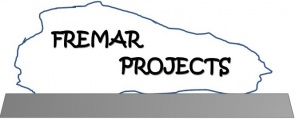Embarking on a multi-phase construction project can be a complex and challenging endeavor. From coordinating multiple contractors and stakeholders to managing shifting timelines and budgets, navigating the intricacies of multi-phase projects requires careful planning, communication, and execution. Here are some key strategies for successfully managing multi-phase construction projects:
Comprehensive Planning:
Thorough planning is essential for the success of multi-phase construction projects. Begin by breaking down the project into distinct phases, each with its own set of objectives, timelines, and resources. Develop a detailed project plan that outlines dependencies between phases, critical milestones, and contingency measures. By anticipating potential challenges and developing proactive solutions, you can minimize disruptions and keep the project on track.
Effective Communication:
Clear and open communication is vital when managing multi-phase construction projects. Establish regular communication channels with all stakeholders, including clients, contractors, subcontractors, and project teams. Keep stakeholders informed of project progress, changes, and expectations to ensure alignment and collaboration. Utilize project management tools and technologies to facilitate communication and streamline collaboration across multiple phases.
Flexible Scheduling:
Flexibility is key when managing multi-phase construction projects, as timelines and priorities may shift due to unforeseen circumstances or changing requirements. Build flexibility into the project schedule by allowing for buffer time between phases and incorporating contingency plans for potential delays. Regularly review and adjust schedules as needed to accommodate evolving project needs while maintaining overall project objectives.
Resource Allocation:
Efficient resource allocation is critical for optimizing productivity and minimizing downtime in multi-phase construction projects. Coordinate resource allocation across phases to ensure that materials, equipment, and manpower are available when needed. Implement strategies to optimize resource utilization, such as cross-training personnel, renting equipment as needed, and prioritizing critical tasks to maximize efficiency.
Risk Management:
Multi-phase construction projects inherently involve increased complexity and risk. Identify potential risks and uncertainties associated with each phase of the project and develop risk mitigation strategies to minimize their impact. Regularly monitor and assess risks throughout the project lifecycle, adjusting plans and resources as needed to mitigate emerging threats and ensure project success.
Multi-Phase Construction Projects Conclusion
By implementing these strategies, construction stakeholders can effectively navigate the challenges of multi-phase construction projects and deliver results that meet or exceed client expectations.



